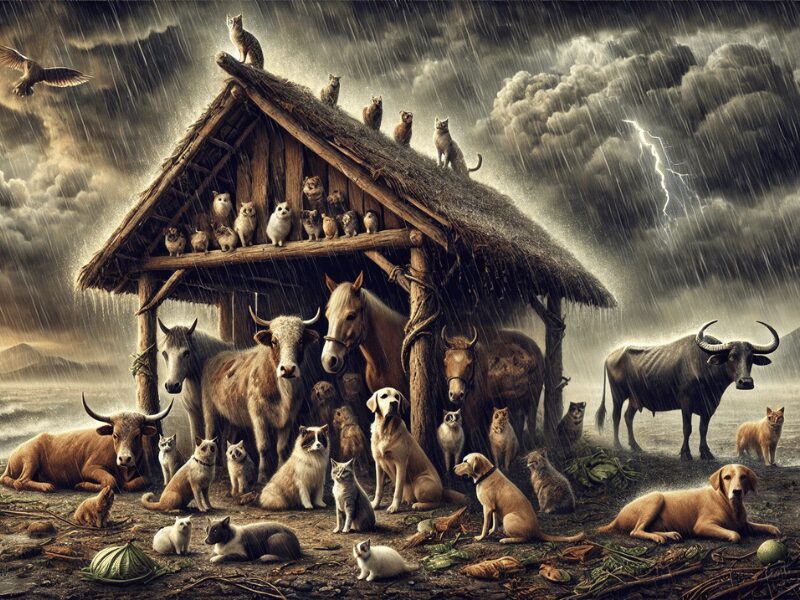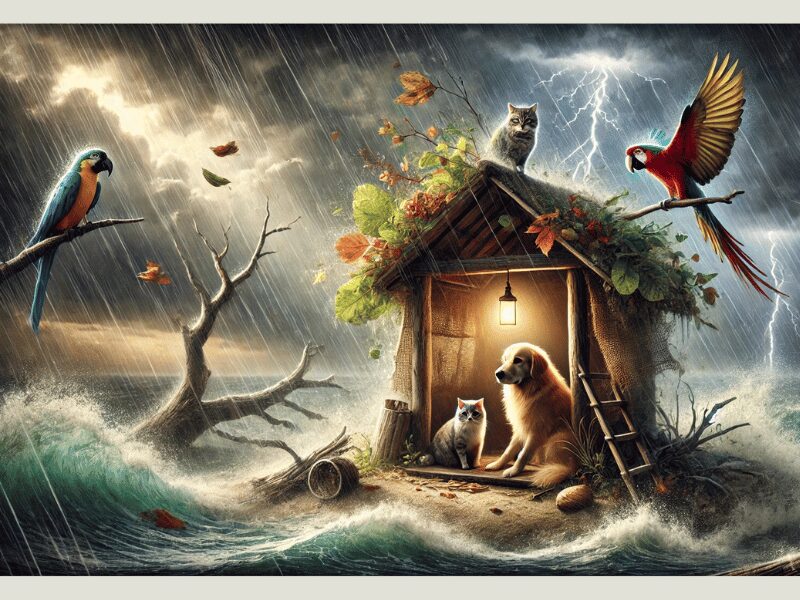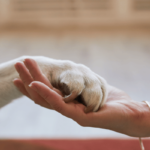When hurricanes like Milton strike, protecting animals becomes a crucial task. Learn about the strategic plans that organizations and pet owners can implement to keep animals safe during these storms.
Preparing Zoos and Aquariums for Hurricanes

Zoos and aquariums, such as ZooTampa, take extensive precautions before hurricanes, ensuring that animals are relocated to secure enclosures. Large animals like elephants and giraffes are housed in hurricane-proof structures, while smaller animals and birds are transported to kennels. To prevent stress, staff members monitor the animals’ behaviors throughout the process, ready to address any signs of distress.
Zoo staff practice emergency drills throughout the year, allowing for efficient, rapid responses when hurricanes approach. A dedicated team, including animal caregivers, veterinarians, and maintenance staff, remains onsite to handle any incidents that arise. These experts monitor enclosures and check for hazards such as downed trees or broken fences that could allow animals to escape.
Such preparedness is vital for the welfare of endangered species like red wolves, as only a few of these animals remain in the wild. The zoo also enlists support from local and national agencies to help coordinate resources and communicate with local shelters regarding at-risk animals.
Temporary Shelters and Animal Rescue Efforts

When hurricanes displace animals, temporary shelters and rescue organizations become essential. Network for Animals partners with groups like Wings of Rescue, using aircraft to transport stranded animals to safe locations. These temporary shelters provide much-needed space for animals until they can be reunited with owners or moved to permanent shelters.
Animal welfare organizations work around the clock to rescue and relocate pets during storms. Humane Society teams coordinate with local shelters, preparing by stocking up on food, medical supplies, and necessary resources. These organizations also collaborate with corporate sponsors to deliver supplies, such as crates and litter, to affected areas.
Volunteer groups often assist in the cleanup efforts post-hurricane, helping to repair shelters and ensure that facilities are ready to receive animals. This collaboration between shelters and rescue organizations enables them to manage large influxes of animals, prioritizing safety and well-being.
Emergency Preparedness for Pet Owners

For pet owners, preparing an emergency kit is essential to protect animals during hurricanes. Recommended items include food, water, medications, and identification tags. Owners should also consider placing a familiar item, such as a well-worn piece of clothing, in pet carriers to provide comfort during stressful relocations.
Designating a caregiver can ensure pets are safe if owners cannot return home. Pet owners should prepare a list of their pets’ daily routines and medical needs, sharing this information with potential caregivers. Additionally, researching pet-friendly shelters or boarding options can help if evacuation becomes necessary.
Taking photos of pets before a storm is another practical step. These images can be invaluable in reuniting owners with lost animals, especially if access to digital devices is limited due to power outages. Physical copies of pet photos can help in identification efforts, increasing the chances of a successful reunion.
Conclusion:
Hurricanes like Milton highlight the importance of comprehensive animal rescue and protection strategies. Zoos, shelters, and organizations play a pivotal role in safeguarding animals, from relocating endangered species to coordinating emergency shelters for displaced pets. Pet owners also bear responsibility for their animals’ safety, and with preparation, they can mitigate risks during these natural disasters. By adopting strategic measures—such as preparing emergency kits, identifying temporary caregivers, and partnering with rescue organizations—animal welfare remains a priority amid the chaos.
In the face of powerful storms, the coordinated efforts of animal welfare organizations and pet owners make a significant impact. With each hurricane season, these plans evolve to better protect animals, ensuring they receive the care and attention they deserve. Together, these strategies serve as a testament to the resilience and compassion within the community.
If you’re a pet owner or an animal advocate, take action now by supporting organizations like the Humane Society and Network for Animals. Your contributions can help provide emergency supplies and secure safe shelters for animals affected by hurricanes.

References:
- ZooTampa Protects Animals
- Animal Rescue Post-Hurricane Milton
- Pet Owner Preparedness Tips
- Humane Society’s Hurricane Response

Join Marjorie Pearson at dwfocus.com, your guide in the pet parenting world. As an experienced animal behaviorist, Marjorie offers heartfelt advice for pet owners. Her expertise spans from nurturing kittens to understanding dogs’ playful antics. She’s passionate about enhancing the bond between pets and their humans through understanding and empathy. Discover Marjorie’s practical training tips and insights on dwfocus.com, enriching your journey as a pet owner. #4PawsAndOwners #MarjorieEarsonPetWhisperer #dwfocus








